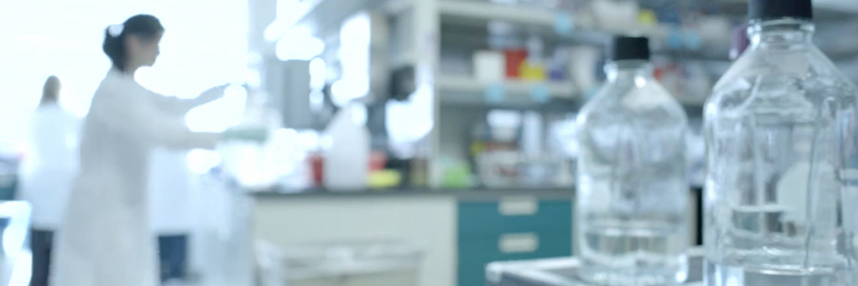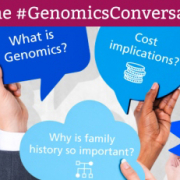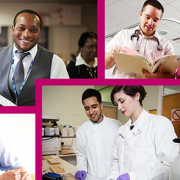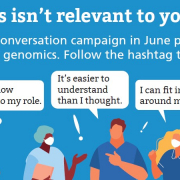Rare disease and the potential of genomics
Two short films launched this week by HEE highlight the real need of patients with rare diseases for genomics to make a difference
The most remarkable thing about rare diseases is how common they are: about 3 million people in the UK are affected by them, most of them children. But with each individual condition typically affecting only a handful of people, reaching a conclusive diagnosis can be one of the greatest challenges in modern medicine, writes Anneke Seller.
GP Sarah Jarvis has described the diagnostic process as “like searching for a needle in a haystack” and the countless iterations of testing before reaching a confirmed result can take many years of an individual’s short life, with the inevitable toll on them, their parents and carers.
Thankfully, advances in genetic and genomic technology are now providing the potential to transform this diagnostic process.
Health Education England’s Genomics Education Programme has created two short films that aim to raise awareness of rare disease among healthcare professionals and patients, and the options in the diagnostic process. We have produced these films in partnership with the Department of Health, and working with rare disease charities, including Rare Disease UK and SWAN UK (Syndromes Without A Name), clinicians and patient groups.
The diagnostic odyssey
The patient’s story is told by Samantha, mum of Lewis, a child with a rare disease. Lewis has Batten disease – a rare neurodegenerative disorder. Samantha talks about her experience of the diagnostic odyssey over the course of more than 7 years, and what helped them finally reach a diagnosis for Lewis.
In the first of these films, aimed at patients with a suspected rare disease and their families, Samantha gives an insight into the journey of getting a diagnosis and offers practical advice to others in a similar situation. After years of testing, Lewis finally received his diagnosis via the UK-led genomics research study, DDD (Deciphering Developmental Disorders). The film highlights the potential of these genomics technologies to improve outcomes for patients like Lewis.
In the second film, aimed at GPs and other healthcare professionals, experts offer practical advice on how to support a diagnosis of a patient with a suspected rare disease. This film shows how genomic technologies can transform patient care, in particular through the work of Genomics England and the 100,000 Genomes Project.
Raising awareness
The films are being launched this week with a special screening at the House of Parliament, in advance of Rare Disease Day on Saturday 28 February. We’re lucky to have high-profile support at this event, from the Minister with responsibility for rare diseases, Earl Howe, the Shadow Minister for Care and Older People Liz Kendall, NHS England’s Head of Specialist Services Fiona Marley and Alastair Kent OBE, Chair of Rare Disease UK.
The single factor that binds all of us working in the NHS is the desire to use our skills and expertise to improve the quality of life for those in our care. Watching these films you cannot fail to be touched by the impact that rare diseases have of families like this. By building the understanding of rare disease and providing support to the NHS teams taking patients through the difficult journey of diagnosis, we are showing the enormous potential that genomic technologies have to transform the quality of life for millions of people.
Dr Anneke Seller is scientific adviser for Health Education England’s Genomics Education Programme, and director of genetic laboratories at Oxford University Hospitals NHS Trust









